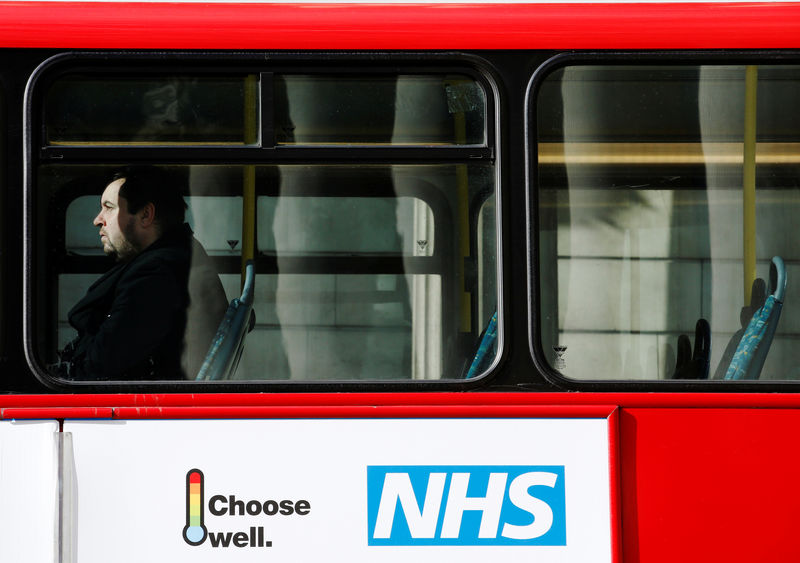By Ben Hirschler
LONDON (Reuters) - Can society afford modern medicines? It's a question facing governments worldwide and nowhere more so than in Britain, where a new budget test due to take effect on April 1 threatens to throw up another hurdle to patients getting the drugs.
For the last 18 years Britain has led the way in measuring drug cost-effectiveness in a rational and dispassionate way, using a model of economic benefits developed by the National Institute for Health and Care Excellence (NICE).
NICE has inspired copycat agencies across Europe - and in countries as diverse as South Korea and Mexico - giving it an influence beyond Britain's 3 percent slice of global drug sales.
Now, however, the original system is struggling and patient charities and drugmakers are alarmed, especially given the wider funding uncertainties facing the National Health Service (NHS), which offers free care at the point of delivery.
The new rules mean drugs costing NHS England more than 20 million pounds ($25 million) a year will no longer get automatic funding, even if they are cost-effective.
Instead, firms will have to haggle to get them used, resulting in a potential delay of three years.
Peter Johnson, professor of medical oncology at the University of Southampton, fears his patients may lose out on a wave of costly new immunotherapy drugs that are starting to transform treatment.
"Just when we are seeing an increase in the pace of progress with these drugs, I'm worried that this country is going to be unnecessarily slowed down by the new affordability cap," he told Reuters.
Since immune system-boosting drugs like Merck (NYSE:MRK) & Co's Keytruda, Bristol-Myers Squibb's Opdivo and Roche's Tecentriq can be used against a wide range of cancers, their budget impact will be significant.
"Almost all these new cancer drugs will hit the 20 million pounds ceiling very quickly indeed, particularly when they are used for common cancers like lung cancer," said Johnson, who also acts as chief clinician for Cancer Research UK.
Meeting rising demand from medical advances and aging populations is a universal problem, whether healthcare is funded by UK-style general taxation, compulsory social insurance common in western Europe or private insurance as in the United States.
But NICE is unusual in putting a clear number on the benefit it expects from new drugs, using quality-adjusted life years (QALYs), where one QALY equals a year of perfect health or two years of middling health.
Its basic cost-effectiveness threshold is up to 30,000 pounds per QALY and in future it wants to incentivize drugmakers to come in below 10,000 pounds by offering rapid approval for "exceptional value" products.
NICE data, however, shows only 10 to 15 percent of the drugs it approves currently meet this lower cost-effectiveness hurdle.
RESPONSIBLE PRICING
Carole Longson, director of NICE's center for health technology evaluation, says the onus is on drugmakers to price medicines responsibly.
"Given the pace of technological innovation, the demands of people who need healthcare and the return on investments that shareholders wish for, the system is struggling," she said.
In some cases that may mean phasing payments, rather than simply cutting prices, when treatments like cancer immunotherapy or gene therapy offer long-lasting benefits.
"We need to find ways to structure the budget impact," she said in an interview.
NICE's QALY thresholds have long provoked controversy and complaints among drugmakers whose products have fallen on the wrong side of the equation, yet the system has stood the test of time, albeit with tweaks such as looser requirements for end-of-life care.
The new budget test, however, is "a kind of fudge", said Karl Claxton, a health economist at the University of York, who served on NICE's appraisal committee from 1999 to 2012.
"As a result of trying to put patches on all of this, we end up with a very confusing and rather arbitrary approach," he said.
The upheaval comes at a tricky time for the government, which is about to trigger proceedings to leave the European Union but wants to encourage investment by pharmaceutical firms, which account for a fifth of all UK business R&D spending.
"It's a disastrous signal to send to the rest of the world," said Mike Thompson, chief executive of the Association of the British Pharmaceutical Industry, who still hopes the government could change its mind before the end of the month.
